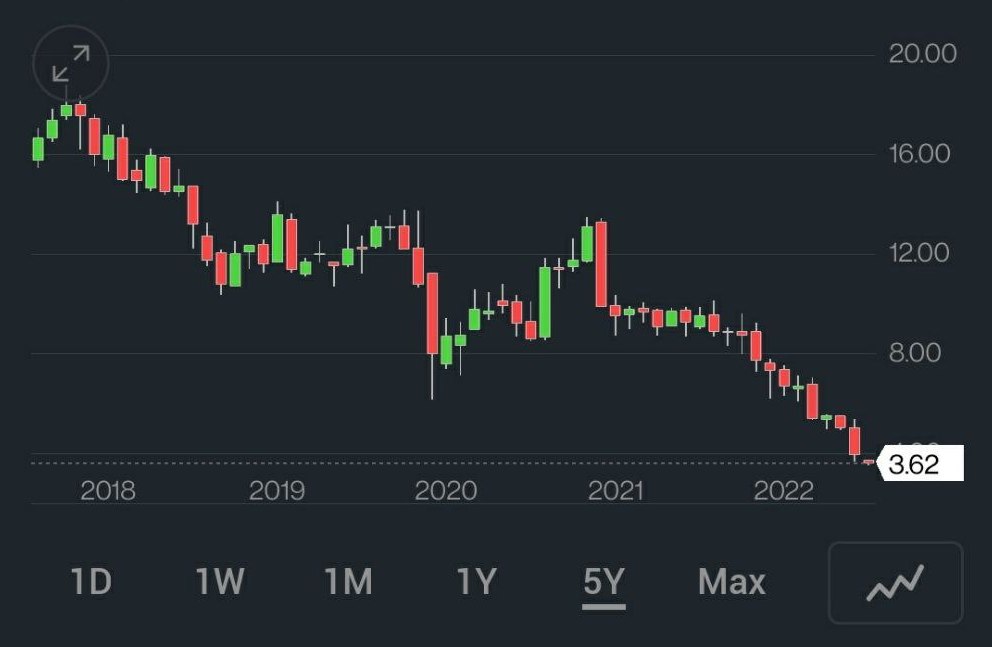Thu, Feb 9th 2023

Credit Suisse has suffered blow after blow — from an employee spying scandal to failed investments.
Credit Suisse lost 7.3 billion Swiss francs in 2022 – about 300 million CHF more than what financial analysts expected, according to data the bank released this week. Despite Switzerland’s second largest bank warning that a radical restructuring plan would cause losses in both its wealth division and the investment banking sector, it posted a surprising net loss of 1.39 billion CHF in the last quarter alone.
“The franchise is deteriorating so far faster than expected and seems to be ongoing.” said JPMorgan analyst Kian Abouhossein told the Financial Times.

On Zurich’s Paradeplatz, the floundering Credit Suisse’s headquarters are neighbors with the prospering UBS’s headquarters.
Credit Suisse has been plagued by years of scandals, court cases, and record-breaking losses. The bank dropped from a profit of CHF 2.7 billion in 2020 to a loss of CHF 1.65 billion in 2021, mostly due to bad investments in failed supply chain group Greensill and hedge fund group Archegos. In the 2021 collapse of the hedge fund, U.S. authorities have charged Archegos’ founder Bill Hwang and three colleagues with racketeering and fraud charges.
In October of 2021, U.S. and U.K. authorities handed down a verdict that Credit Suisse must pay CHF 439 million to resolve a Mozambican corruption scandal which included bribery and fraud charges. The same week, the Swiss Financial Market Supervisory Authority announced it had discovered “serious organization shortcomings” in its investigation into a corporate espionage case that began with a 2020 audit of the bank. According to the investigation, Credit Suisse spied on members of its board and former employees. By 2022, bad headlines became synonymous with the bank and #DebitSuisse was trending on Twitter.
In October of 2022, Credit Suisse Chairman Axel Lehmann made an attempt to shore up confidence by announcing a radical restructuring plan, but rumors of its true financial health scared off many of their wealth management clients. UBS was the main recipient of customers pulling their cash out of Credit Suisse accounts. UBS saw a 23% increase in pre-tax profits for its last quarter of 2023, thanks to an influx of Credit Suisse clients.

Most of the outflow of cash from Credit Suisse seems to have ended up at competitor UBS.
The bank was able to raise about 4 billion CHF in capital thanks to Saudi National Bank taking a roughly 10% stake in the floundering institution. In addition, Credit Suisse let go of as many as 9,000 employees (2,000 of which were based in Switzerland). Credit Suisse says its restructuring plans will cost another 1.6 billion CHF in 2023.
The bank is “seeing money now coming back in different parts of the firm,” Chief Executive Ulrich Koerner said recently. But financial analysts, such as Thomas Hallett at Keefe, Bruyette & Woods, says it may not be enough after the “huge” losses.
“At best, some return but at what cost? We expect this to be viewed negatively,” Hallett told FT.

A look at Credit Suisse’s last five years in stock prices. Can it change the trend?
“We have a clear plan to create a new Credit Suisse and intend to continue to deliver on our three-year strategic transformation by reshaping our portfolio, reallocating capital, right-sizing our cost base, and building on our leading franchises,” Chief Executive Ulrich Koerner said in a statement Thursday.
As part of its restructuring, the bank has transformed its investment banking arm with the $175 million purchase of Michael Klein’s advisory firm M. Klein & Co. Those operations will house investment banking functions under its new Credit Suisse First Boston (CSFB) brand. The purchase is considered controversial by some, as Klein was a member of the Credit Suisse Board of Directors until very recently.
“With heavy losses to continue in 2023, we expect to see another wave of downgrades and see no reason to own the shares,” Keefe, Bruyette and Woods analysts wrote in a note Thursday. If Credit Suisse can find its footing and regain the confidence of its investors remains to be seen in 2023.
This article may be freely shared and re-printed, provided that it prominently links back to the original article.
